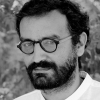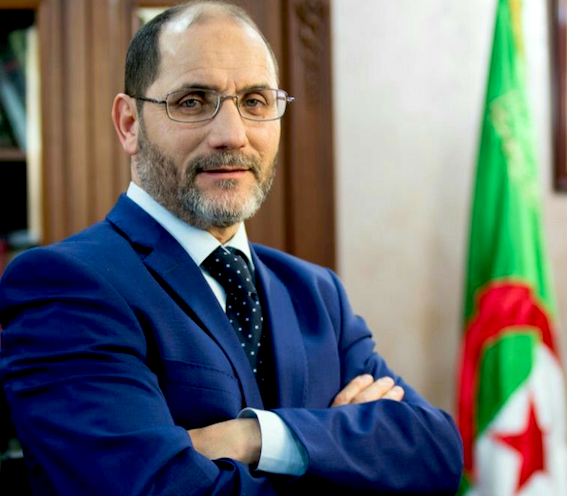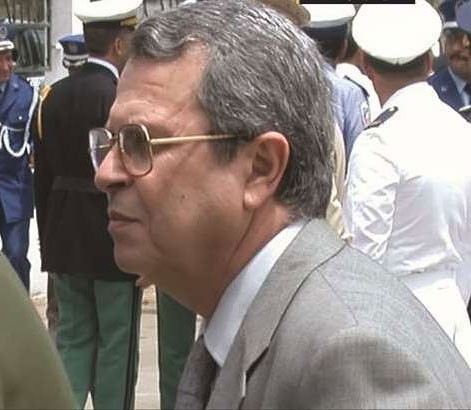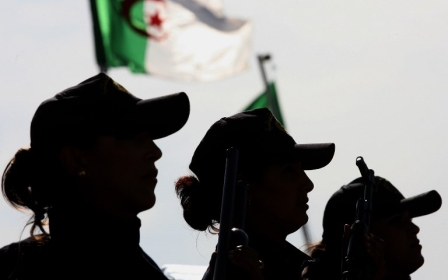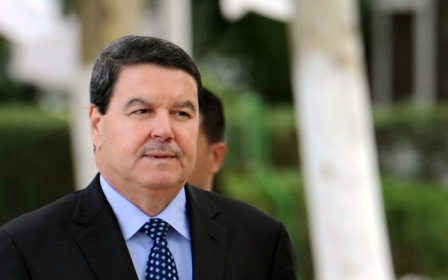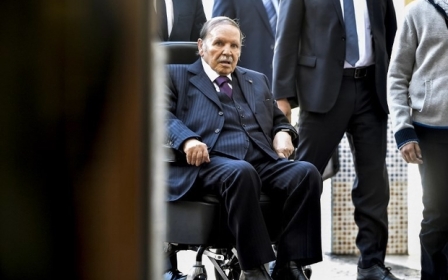Algeria's army: Separating the facts from the fictions
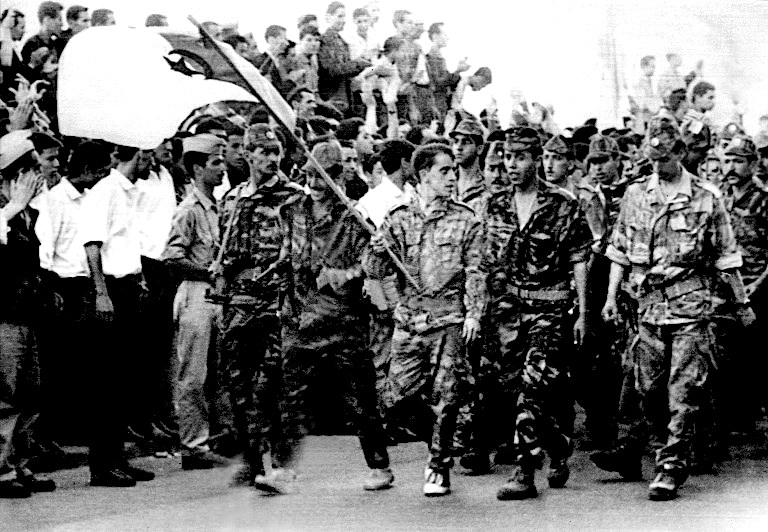
In recent months, political developments in Algeria - namely, important changes among top military officials and calls for a military-backed political “transition” - have converged around the role of the army.
In late August, four of Algeria's six regional military commanders were dismissed, a move that came after the sacking of the military police chief and five of the gendarmerie’s six regional commanders.
The chief of staff insisted that his regime didn’t have a political agenda and did not want 'to get involved in the entanglements of parties and politicians'
This spate of summer firings has everyone talking - and guessing. It also coincides with a major narco-political scandal that the entire country is watching in disbelief: the seizure of 701 kilograms of cocaine in the western port of Oran. Throw in the prospect of what looks like an inevitable fifth term for President Abdelaziz Bouteflika and a host of theories attempting to elucidate the aforementioned developments, and separating fact from fiction becomes a tricky business.
Take, for example, the calls from a certain part of the political opposition. In mid-July, the Movement of Society for Peace (MSP, Algeria's main Islamist party) surprised many by appealing to the chief of staff of the People's National Army (ANP) and deputy minister of defence, Lieutenant General Ahmed Gaid Salah, to help "resolve the country's crisis" and pave the way for "democratic transition".
Direct intervention ruled out
Before the senior officer even had a chance to respond to MSP leader Abderrezak Makri, opposition groups were up in arms. "The direct intervention of the army, as a way out of of the current impasse, is by no means a legitimate response to the Algerian political crisis," a spokesperson for the secular Rally for Culture and Democracy party stated.
As for the person most directly concerned with Makri's appeal, Gaid Salah made a point of saying no, insisting on the stance he had taken since his appointment as chief of staff in 2004. "It is sad, and even strange, illogical and intolerable to see that certain people and parties on the eve of elections deliberately remove themselves from the political process, instead of showing a greater interest in citizens' concerns," Gaid Salah said in July.
Admittedly, in the run-up to major elections - presidential elections in particular - opposition discourse has centred on the need for political change and on the responsibility of the army to "guarantee" such a transition.
The opposition maintains that the current political crisis can be attributed to Bouteflika, who has been in power since 1999 (a record) and whose failing health has shaken the system - one that has been unable to renew itself, yet remains resistant to the idea of a change of government.
Appeals to the army - the "only strongly organised corps", to quote politically driven Algerian literature - stem from an enduring perception of the key role and influence of the ANP. "There is a pathological obsession in Algeria and elsewhere - and in France, in particular - with the army as 'kingmaker,'" one former officer told Middle East Eye.
Unrealistic view of the ANP
"The Parisian media and French political actors will never part with their illusions of a gaggle of corrupt, potbellied and bloodthirsty generals planning a putsch - an army of underdeveloped Arabs who devour human flesh," a retired senior intelligence officer bitterly remarked. "In their eyes, we can be nothing other than what their condescending and racist fantasies dictate. No other view of the Algerian army, or of Algerian politics in general, is possible.”
So where do things really stand? The Algerian army is unusual, in that it existed well before the Algerian government. The structuring of the National Liberation Army, the armed wing of the National Liberation Front, during the Algerian War of Independence (1954-1962), and the founding of the secret services, which were in place well before independence, and the laborious spread of the fledgling government’s national institutions, determined our view of the political reality of Algeria.
"The military in Algeria are not the decision-makers. Contrary to popular belief, they have always been at the disposal of the deciders," Rachid Benyelles affirmed at a presentation of his memoirs, Dans les arcanes du pouvoir, in Algiers in May 2017.
Benyelles, a former admiral, general, and secretary general for the department of defence, as well as a minister under Chadli Bendjedid, knows, in principle, what he is talking about. "For example, [President Houari] Boumediene never involved the army in decision-making, in the making of strategic economic choices, that is. He even prohibited politicians from approaching the military. Hardly the stuff of your typical military dictatorship - it was more that of an authoritarian regime."
Of course, there's a hitch to the theory, as the former admiral points out by mentioning the army's intervention in 1992 after the victory of the Islamic Salvation Front.
Army role overrated?
Perhaps we should recall here the role of the military high command after the disappearance of the paternal figure of Boumediene, and the designation of presidents Bendjedid (1979-1992) and Liamine Zeroual (1994-1999).
Speaking of the way in which the military operates in such circumstances, a former defence ministry official told MEE: "But it’s not the entire high command that decides, only a few senior officers and the head of military security."
Given the instability of the nation’s institutions, confined to the orbit of presidential power, the ANP comes across as being 'a strong and coherent regime'
A former minister spoke in a similar vein: "It is necessary here to define a key notion, namely what is meant by the word 'army' - the entire force or its elite officials? We are referring to the military leaders who act under the president’s authority, who step in when ‘civilians’ find themselves in a dead end."
Obviously, a good part of the opposition knows who it is talking to when it calls for an ANP-led intervention. Could it be that the role of the army in the Algerian political arena is overrated?
Yes and no. Given the instability of the nation’s institutions, confined to the orbit of presidential power, the ANP comes across as being "a strong and coherent regime". Indeed, the historical legitimacy acquired by the army since independence in 1962 and its show of strength in the past 20 years has made it a stabilising force in the construction of state power.
The weight of history
“The army played an important role in the construction of state power, presenting itself as a historical actor in the Algerian nation-building scenario,” researcher Radidja Nemar writes. “As the key holder of the state’s political legitimacy, it withdrew from formal power so it wouldn’t have to attend to day-to-day government business. Its role is sustained by a populist discourse touting itself as a progressive force for reform in Algeria, which would justify its later interventions when the nation thus built came under threat.”
One former senior officer said that "occasionally we find ourselves duty-bound to enter the political arena.”
An entire generation of army leaders was profoundly marked by the "parentheses" of the 1990s, when the army put down the Islamist uprising. Senior officers found themselves involved in politics “against their will” and - given the virtual collapse of public institutions and a military regime permanently traumatised by internal fighting - became extremely powerful.
Twenty years later, despite its persistent shortcomings, strong leadership and a clear strategy in terms of training, defence, and weapons and communications programmes have made the ANP one of the most powerful armies in the MENA region today.
“In the meantime, the post-9/11 period put an end to the lingering 'suspicions' that had plagued the Algerian army in the 1990s, since it was recognised, at last, as both a partner and an example in the fight against terrorism,” a retired officer said. Mohamed Chafik Mesbah, a former secret service colonel, spoke of a new generation of military leaders, "who are highly qualified and take an open-minded view of contemporary society".
The human component
Another distinctive feature of the Algerian army is the human component across all levels of command. “Most of the new military leaders come from disadvantaged social classes, and - at best- from the middle class. They are by no means disconnected from the social reality. And while [they] are not particularly politically inclined, they always pay careful attention to the difficulties of the Algerian people and to the obstacles in the way of national development," Mesbah observes.
The changes within the ANP over the past two decades towards a more professional body, along with its ambition to strengthen its own technocratic structure, play directly into the hands of Bouteflika
The changes within the ANP over the past two decades towards a more professional body, along with its ambition to strengthen its own technocratic structure, play directly into the hands of Bouteflika, who has been wisely riding on the army’s coat-tails to hone his image as a civilian president who has successfully kept the ANP out of politics.
The changes that led to the dissolution, in 2016, of the Department of Intelligence and Security - which in 25 years had turned into a bloated security monster - contributed to the further normalisation of the army after the devastating 1990s. “[We wanted] to try to make our political police secret services, styled after the GDR [former communist East Germany], an actual modern intelligence service,” a senior government official said a decade ago.
The recent changes at the head of the nation’s army “are part of an ongoing process of the transformation of the ANP into a professional army, an army under the authority of a single leader, the president, and not a would-be conglomerate of powerful senior commanders”, the defence official said. In his view, attempts to link these changes to the current political landscape “don’t hold water”.
Fine-tuning civilian/military interaction
“The agenda is being determined by the president’s office in full cooperation with the chief of staff,” argued a former minister, who was in office during the 1990s. The former minister was quick to point out the stakes, which involve fine-tuning interactions between public authorities and the military.
However, as political scientist Louisa Driss Ait-Hamadouche told MEE in September 2015: “Political ascendancy over the military implies the existence of civilian means with which to control the army, such as commissions within the Department of Foreign Affairs or the Department of National Defence”.
The ANP’s highest ranking officer is the citizen. This is what we tell our future officers, day in day out. We need to work towards making this slogan a reality. To start, the politicians have to learn not to solicit us at the drop of a hat.
-Former Algerian general
Without these, power struggles will continue to play out in the shadow of the civilian/military divide.
“The ANP’s highest ranking officer," one former general commented, “is the citizen. This is what we tell our future officers, day in day out. We need to work towards making this slogan a reality. To start, the politicians have to learn not to solicit us at the drop of a hat.”
The question, he went on to add, is: “Do they or don’t they want a nation ruled by the people?”
This article originally appeared in French
- Adlène Meddi is an Algerian writer and journalist for Middle East Eye. Former editor-in-chief of El Watan Week-end in Algiers, the weekly version of the most influential francophone Algerian daily, and contributor for the French magazine Le Point, he has written three political thrillers about Algeria and co-wrote Jours Tranquilles à Alger (Riveneuve, 2016) with Mélanie Matarese. He is also an expert on Algerian internal politics and secret services.
The opinions expressed in this article are those of the author and do not necessarily reflect the editorial policy of Middle East Eye.
Photo: At the end of the Algerian War of Independence, in July 1962, the armed wing of the FLN marches on Boulevard Carnot in Algiers (AFP)
New MEE newsletter: Jerusalem Dispatch
Sign up to get the latest insights and analysis on Israel-Palestine, alongside Turkey Unpacked and other MEE newsletters
Middle East Eye delivers independent and unrivalled coverage and analysis of the Middle East, North Africa and beyond. To learn more about republishing this content and the associated fees, please fill out this form. More about MEE can be found here.


